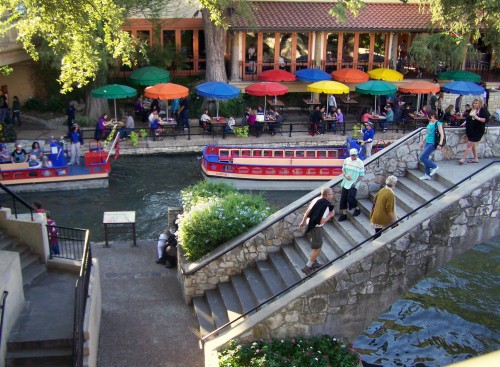On Friday, as is often the case, Obama announced a new executive policy to impose a two year moratorium on deportation of young illegals if they can show they were brought here as children and have finished high school with no encounters with the law. They must be under 30 and were brought here before age 16. He promised that citizenship was not included and did not mention if family members were affected. Janet Napolitano, head of Homeland Security announced that this was the new policy but there has been no confirmation of an executive order.
I don’t have a real problem with this policy but it avoids Congress and legislation, a problem that even Obama acknowledged last year. It is a transparent ploy to appeal for Latino votes. Everyone knows that.
It also will close an opening for compromise.
Obama’s decision probably reduces the likelihood that the scenarios of greatest concern to me will come to pass, especially if Obama is re-elected. Irate Republicans are even less likely than before to cooperate with the administration on this issue now that it has acted so high-handedly and in such a patently political manner. As Marco Rubio, who is planning to sponsor some sort of DREAM Act, said today, by imposing a new policy by executive order, Obama has made it harder in the long run to reach consensus on “comprehensive policy,” i.e., one that gives illegal immigrants additional benefits and a path to citizenship.
The attraction of the action taken by Obama may have been that it would trump a possible Republican compromise on this topic. Now, suspicion has grown that amnesty and voting rights are the next step. The use of executive order for such a change in policy has been attacked as illegal.
So what we have here is a president who is refusing to carry out federal law simply because he disagrees with Congress’s policy choices. That is an exercise of executive power that even the most stalwart defenders of an energetic executive — not to mention the Framers — cannot support.
Even Obama said the same a few months ago in explaining his then inaction. “I wish I could wave my magic wand,” Mr. Obama said. “Until Nancy Pelosi is speaker again… At the end of the day, I can’t do this all by myself. We’re going to have to get Congress to act. I know Nancy Pelosi’s ready to act. It’s time to stop playing politics.”
Well, playing politics is the order of the day and the Republicans should focus on the illegality of doing it by executive order and not on the policy, itself. With proper safeguards, the policy is a good idea although there may be backlash from semi-skilled unemployed who just got a million new competitors. Certainly the unemployment figures should now be adjusted for all the new legal job seekers.
The distraction of the Daily Caller reporter interrupting the president was an amusing sidelight. Had Obama demonstrated humor and a benign manner, it might have been a good moment for him. Instead, he showed anger and the incident will probably lead to more interruptions as it seems to be the only way to ask this president a question.

